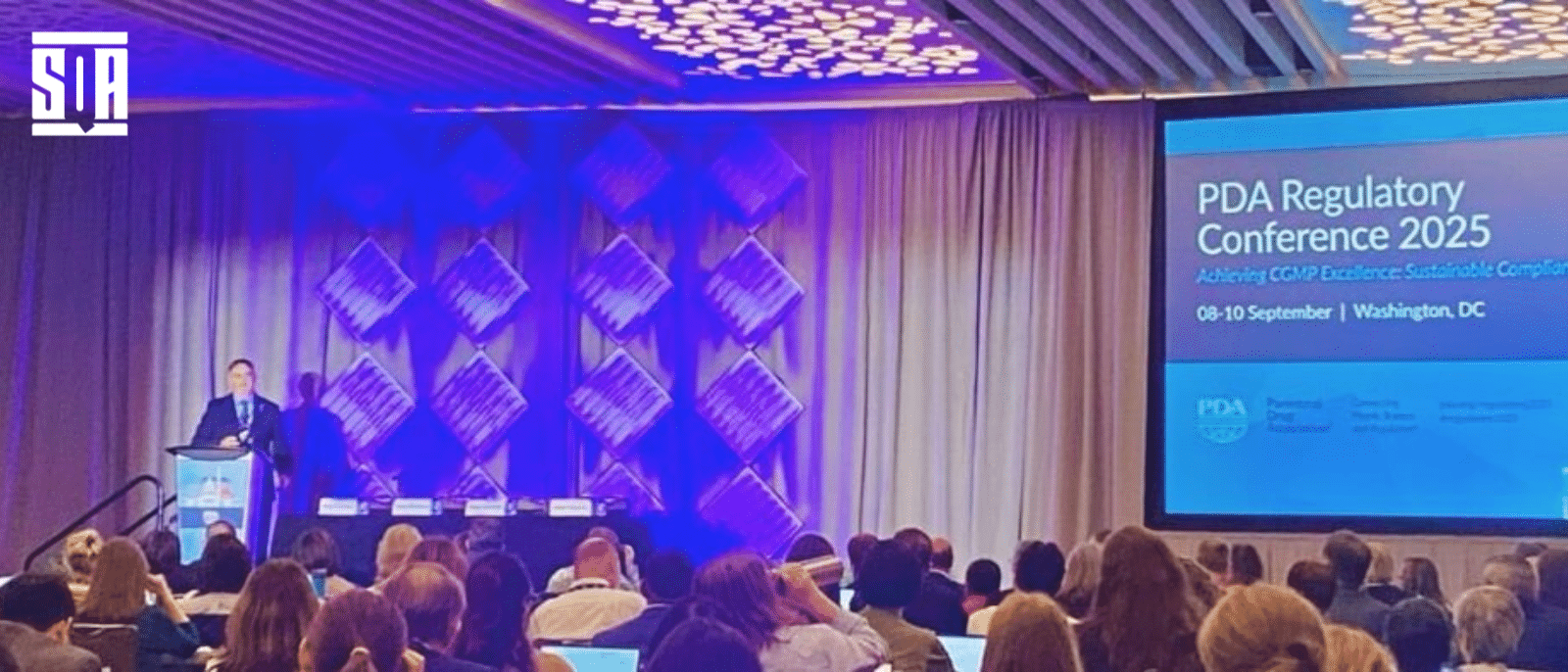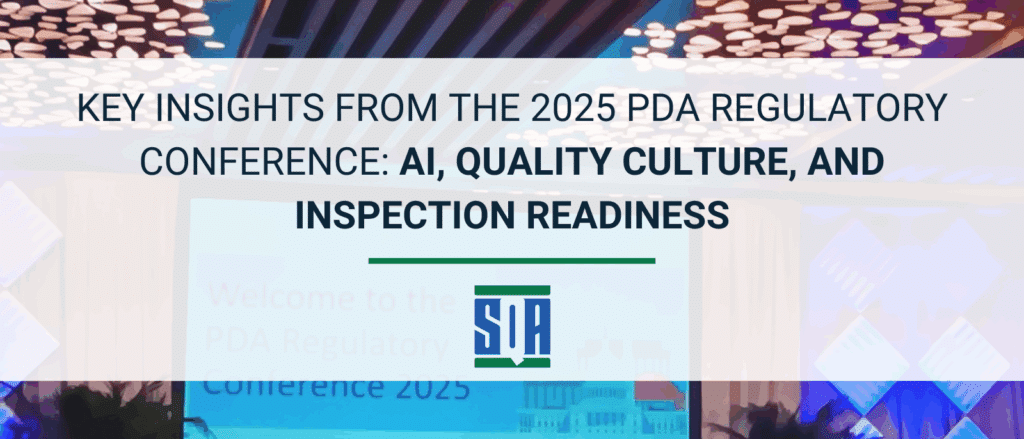2025 PDA Regulatory Conference Key Insights
Last week, SQA Services attended the Parenteral Drug Association (PDA) Regulatory Conference in Washington, D.C., where regulators, quality leaders, and industry experts gathered to share perspectives on compliance, inspection readiness, and digital transformation in life sciences. Our team captured the most impactful insights from both days of the event.
AI and Data Integrity: Promise and Caution
Speakers emphasized the growing role of artificial intelligence (AI) and large language models (LLMs) in regulated environments.
- AI can support audit preparation, CAPA analysis, FDA 483 trend monitoring, and documentation efficiency, but must never replace human expertise.
- Tools must be validated like GxP systems, with rigorous oversight, qualification, and training.
- The FDA expects organizations to adopt cautiously, starting small and building cultural buy-in before scaling.
- The term heavily emphasized is HITL = Human In The Loop, to always include the human element as a Quality review step when AI is used
The message was clear: AI is a powerful tool when paired with governance and human judgment.
Shifting the Quality Mindset: From Cost Center to Value Driver
A major theme was reframing quality as a strategic driver, not a cost center.
- Predictive analytics can help organizations anticipate deviations and workforce trends across multiple sites.
- Advanced therapies such as gene therapy require holistic quality approaches that address long-term patient outcomes.
This shift highlights the need for quality teams to demonstrate business value through efficiency, compliance, and patient-centric outcomes.
Training for Performance, Not Just Compliance
Training continues to be a regulatory spotlight. Experts called for a move beyond checklist training toward performance-driven learning.
- Programs should align with KPIs, risk awareness, and real-world job impact.
- Methods like gamification, scenario-based learning, and feedback loops improve engagement and retention.
- A culture of continuous learning ensures compliance and workforce strength.
Organizations that embed training into daily operations will see better compliance and long-term performance.
FDA’s Current Focus
Regulators from both CDER and CBER outlined pressing areas of oversight.
- GMP compliance, drug adulteration, and compounding practices.
- Data integrity, sterility assurance, and laboratory controls.
- Documentation, stability studies, and batch production remain frequent areas of deficiency.
- Guidance for Industry (GFIs) remain vital tools for aligning with FDA expectations.
The key takeaway: compliance is increasingly proactive, risk-based, and data-driven.
Building a Culture of Quality and Inspection Readiness
Beyond systems and tools, culture and leadership remain the foundation of success.
- Leaders must model accountability and transparency, encouraging employees to raise issues early.
- Companies like Takeda demonstrated the effectiveness of global self-inspection programs, mock audits, and Inspection Readiness Evaluations (IREs).
- Effective communication across regulatory, operations, and quality teams helps sustain compliance and trust.
Inspection readiness is no longer a one-time activity — it must be a continuous state of preparedness.
SQA’s Perspective
The PDA Regulatory Conference reaffirmed what we see daily at SQA Services:
- Compliance, quality, and digital transformation are deeply interconnected.
- Organizations that succeed will balance innovation with governance, leveraging AI responsibly while strengthening human oversight.
- Building a culture of quality and accountability is essential for long-term success.
At SQA, we partner with clients across life sciences, aerospace, and other regulated industries to deliver the expertise, digital tools, and quality frameworks that ensure resilience and compliance in today’s fast-changing landscape.
Ready to strengthen inspection readiness or responsibly integrate AI into compliance frameworks? Contact SQA Services to learn how we can support your journey.


